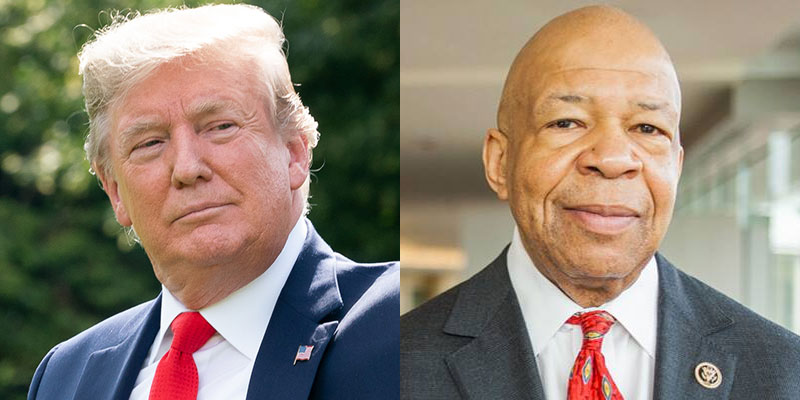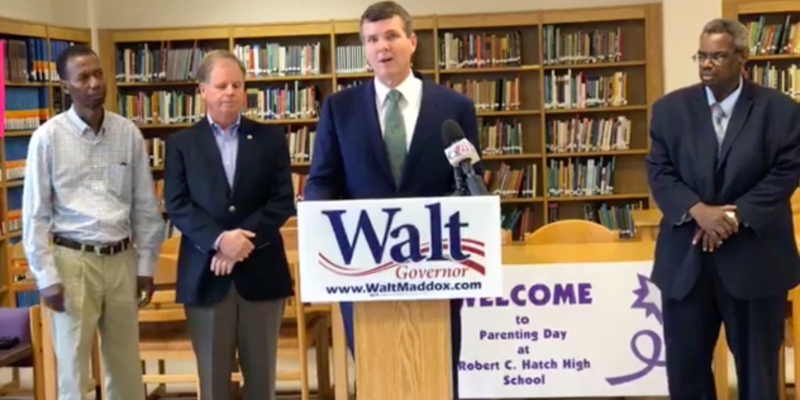While most will be watching what happens with the national politics and the fallout that is to come as the returns stream in, there are a handful of storylines here locally in Alabama.
How Tuesday turns out in Alabama will provide data for future elections, including in 2020 when Sen. Doug Jones (D-Mountain Brook) is expected to have a line of challengers on the Republican side.
Here are five things to look at after the votes are counted, and the dust settles:
1) Monroe County as a national bellwether: In the county known for its American literary giants, Monroe County Democrats are on the defense for the first time since Reconstruction.
Monroe County is one of the last remaining holdouts for Democrats in conservative-leaning counties in Alabama. As the Blue Dog Coalition of Democrats faded and conservative Democrat officeholders made the transition to the GOP, Monroe County Democrats have been able to hold on to power.
The demographic shift resulting from Vanity Fair’s downsizing in Monroeville has aided Democrats, but the GOP is showing signs of life by fielding competitive candidates in the races for sheriff, probate judge and district judge.
If Monroe County finally makes the switch, it could be a sign of what is to come nationally.
2) Two competitive state senate races: Up in North Alabama on opposite sides of the state, the races for Alabama Senate Districts 6 and ten will be the most competitive in Alabama.
In District 6, State Rep. Johnny Mack Morrow (D-Red Bay) is challenging incumbent State Sen. Larry Stutts (R-Tuscumbia) for his seat. The seat, formerly held by Roger Bedford, is in play.
In District 10, Gadsden Democrat State Rep. Craig Ford is running as an independent against Centre Republican Andrew Jones for the seat soon to be vacated by Sen. Phil Williams (R-Rainbow City).
In a state without a lot of competitive races, these will be the two contests highlighting the slate of competitive races.
3) Will the Bob Vance-Tom Parker race for Alabama Supreme Court Chief Justice be competitive? Nah, but it should be closer than the other races at the top of the ticket.
Vance has a lot of support in Alabama’s legal community. A drive around the neighborhoods of Montgomery’s Cloverdale, Birmingham suburb Mountain Brook and Mobile’s Spring Hill also yields a lot of Vance yard signs.
However, overcoming the power of the straight-ticket voting is likely to prove to be difficult, especially in a down-ballot chief justice race.
4) Watch Lee and Tuscaloosa Counties and Birmingham’s southern “Over the Mountain” suburbs: If there are any signs of Alabama Republicans losing their stranglehold on Alabama, it will be in these three places.
In Lee and Tuscaloosa Counties, the explosive growth in academia has benefitted the University of Alabama and Auburn University. With that growth comes more Democrat voters.
Democrats are also making strides in places like Homewood, Vestavia Hills and Hoover, evidenced by Doug Jones’ 2017 election win.
Most of the precincts in these areas are still solidly R, but not as solid as they used to be.
5) Stop thinking Martha Roby is vulnerable: For whatever reason, the national media has focused on Alabama’s second congressional district throughout the 2018 election cycle.
The thinking was that Roby dropped her support for Donald Trump in the late stages of the 2016 election after the so-called “Billy Bush weekend,” she could be beaten in future elections. Roby was punished with four challengers in her primary, including a relic from the River Region’s political past, former Montgomery Mayor Bobby Bright.
Before Roby’s election in 2008, Bright held the seat as a Democrat. National media types watching the race from afar thought since it had recently been in Democrat’s hand, it could be flipped.
Enter Tabitha Isner. Isner has been the recipient of puff pieces from national outlets. The theory is that with the changing demographics of Montgomery, dissatisfaction with Roby and the historical precedent of a post-presidential midterm will lend itself for a favorable result for a Democrat.
That won’t be the case.
@Jeff_Poor is a graduate of Auburn University and is the editor of Breitbart TV.













